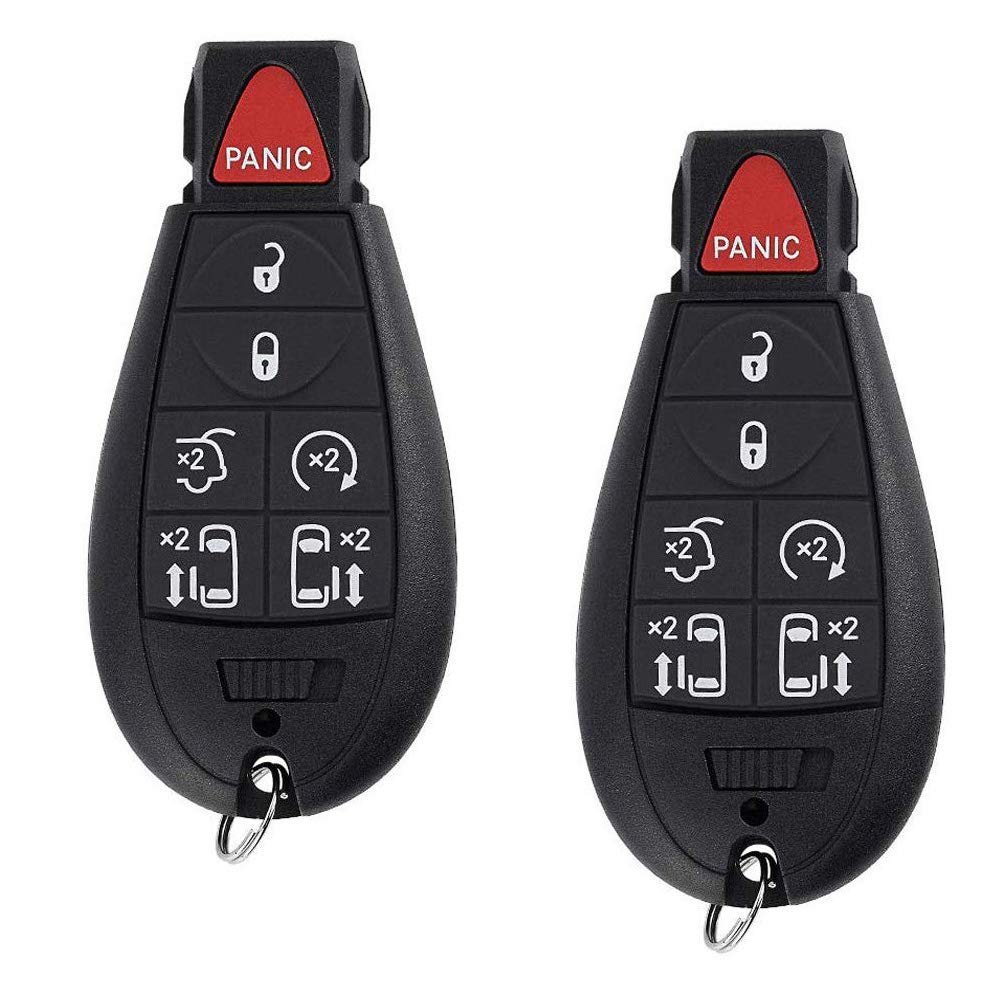Jeep owners often find themselves in situations where they need a replacement or additional key fob for their vehicles. While the natural inclination might be to turn to the original equipment manufacturer (OEM) for a replacement, many wonder if third-party or aftermarket key fobs are a viable and cost-effective alternative. In this article, we'll explore the possibilities, considerations, and potential benefits and drawbacks of using a third-party key fob for your Jeep.

1. Understanding OEM vs. Aftermarket Key Fobs:
Original equipment manufacturer (OEM) key fobs are those produced by the same company that manufactured your Jeep. Aftermarket key fobs, on the other hand, are produced by third-party manufacturers not affiliated with the original Jeep brand.
2. Cost Considerations:
One of the primary reasons Jeep owners explore aftermarket key fobs is the potential cost savings. OEM replacements can be expensive, and aftermarket options often provide a more budget-friendly alternative. However, it's essential to balance cost considerations with the assurance of quality and compatibility.
3. Compatibility Issues:
Jeep vehicles come with advanced security systems, and key fobs play a crucial role in this setup. Aftermarket key fobs may not always be guaranteed to work seamlessly with your vehicle's security system. Compatibility issues could lead to functionality problems or, in extreme cases, failure to operate altogether.
4. Programming Challenges:
Programming a key fob is a critical step in ensuring it works with your Jeep. While some aftermarket key fobs are designed to be programmable by the user, others may require professional assistance or specialized equipment. Understanding the programming process is vital to avoid frustration and potential complications.
5. Quality and Reliability:
The quality of aftermarket key fobs can vary significantly. Some may be of comparable quality to OEM counterparts, while others may be less durable or prone to malfunctions. Reading reviews, checking for certifications, and purchasing from reputable sources can help mitigate the risk of receiving a subpar product.
6. Warranty Considerations:
OEM key fobs typically come with a manufacturer's warranty, providing a level of assurance for the buyer. Aftermarket key fobs may or may not offer similar warranties, so it's crucial to check the terms and conditions before making a purchase. A reliable warranty can be an indicator of the manufacturer's confidence in their product.
7. Legal and Regulatory Compliance:
Before opting for a third-party key fob, it's essential to ensure that it complies with local laws and regulations. Some regions have specific requirements regarding key fob functionality and security features, and using non-compliant devices could lead to legal issues or complications.
8. Professional Advice:
If uncertain about the compatibility or programming process, seeking advice from a professional locksmith or contacting the Jeep dealership can provide valuable insights. Professionals can guide you on the best course of action based on your specific Jeep model and security system.
Conclusion:
While third-party or aftermarket key fobs can offer cost savings, Jeep owners should approach this option cautiously. Considerations such as compatibility, programming, quality, and warranty are crucial factors in making an informed decision. Before purchasing a third-party key fob, research thoroughly, seek advice from professionals, and weigh the potential benefits against the risks to ensure a reliable and secure solution for your Jeep.

 Englishen
Englishen











 No.991 Xingxiu Road,Taiwanese Investment Zone, Quanzhou, Fujian Province,P.R.China
No.991 Xingxiu Road,Taiwanese Investment Zone, Quanzhou, Fujian Province,P.R.China +86 13960286508
+86 13960286508
 3D Reality Showroom
3D Reality Showroom
